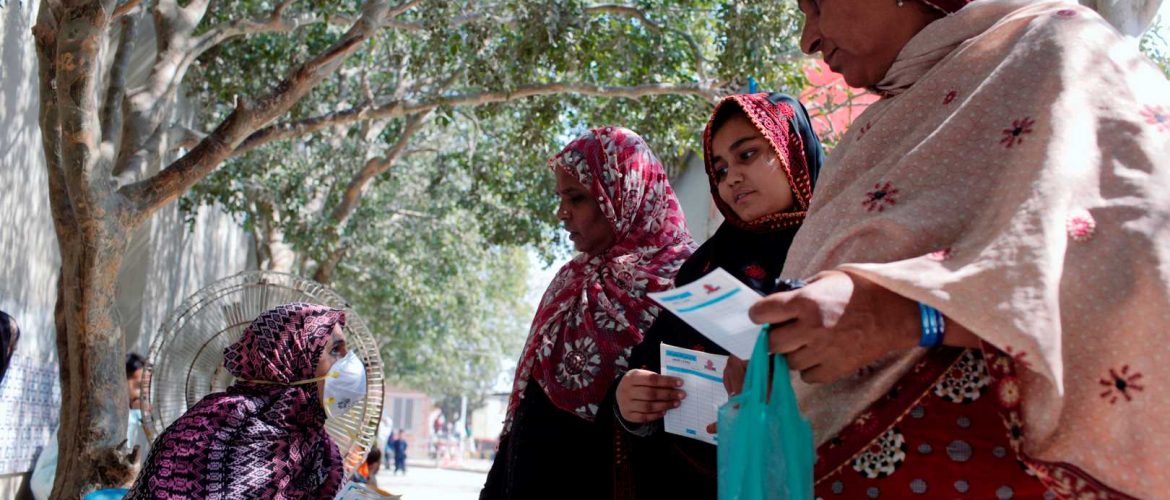
Ruqaiya is a resident of Lyari, Karachi. Before her marriage, she worked as a Community Health Worker. After her marriage, she worked as a maid in order to support her family. When Ruqaiya was diagnosed with Drug-Resistant Tuberculosis, she fell into denial. The diagnosis had many adverse effects on her physical and mental health along with her social life. She had to quit her job and after some months of treatment, she began to lose her hearing – a common side-effect of TB medication.
This had severe repercussions for her family, it became difficult for her to communicate with her loved-ones, and the frustration from this coupled with the weakness caused by the disease also affected her married life.
In May 2017, Ruqaiya was enrolled into the Psycho-social Support Interventions (PSSI) program which offered her social support along with mental health treatment. A Community Mental Health Officer (CMHO) was assigned to Ruqaiya for weekly mental health counselling sessions. In addition, Ruqaiya was also selected for life-skills training’s, with a group of her relatives and neighbors.
Counselling was not easy for Ruqaiya due to the physical remnants of her medication; it became challenging for her and her CMHO to communicate effectively. In the past, people would shout at her to get her attention, which would often hurt her. However, after discussing the issue with the psychologists, the CMHO found a solution. She would write down questions and comments on a piece of paper and Ruqaiya would respond accordingly. This mode of communication became an effective method of providing treatment.
As a result of the weekly sessions, Ruqaiya’s mood started to improve. Her frustration and aggressive behavior started to diminish. She eventually started to relax and tried to enjoy her life. She was taught anger management techniques, both in her individual counselling as well as life-skills sessions, which helped her later in life.
Women like Ruqaiya often face many barriers to recovery due to social isolation, feelings of hopelessness and the stigma associated with communicable diseases like TB. IHN’s mission to provide free healthcare and counselling services to patients like Ruqaiya allow them to address and overcome the challenges of their illness and associated treatment so that they may continue to live a fruitful life.
Ruqaiya is now a strong believer that counselling works better than medication for people suffering from such illnesses. After the life skill sessions, Ruqaiya began to feel positive and motivated. She is now keen to work for her family, and wants to plan a good future for her children. She has a very strong support system in her family, particularly her husband, who always encourages her.




